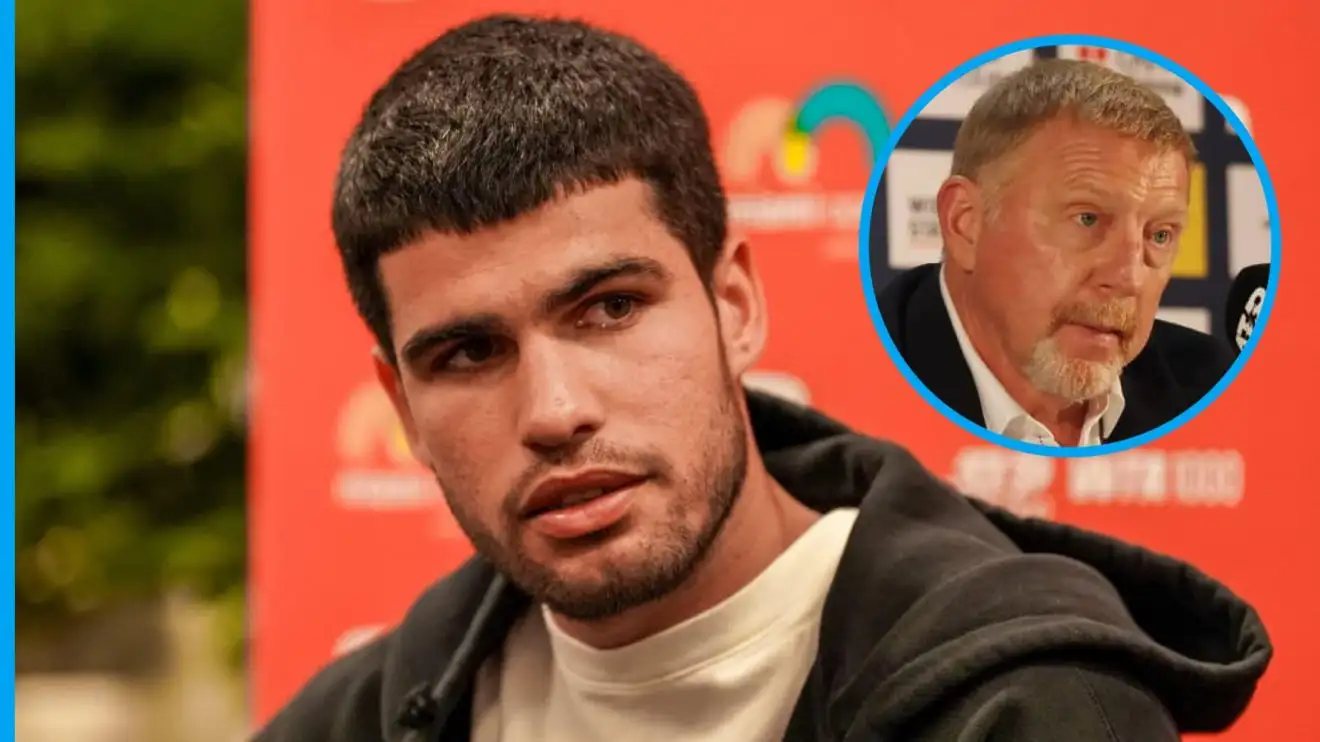
In the glittering ambiance of the 2025 Laureus Awards in Madrid, tennis legend Boris Becker seized a rare moment to impart wisdom to Carlos Alcaraz, the 21-year-old Spanish sensation whose meteoric rise has captivated the sport. The private exchange, revealed by Becker in a candid interview, underscored the German’s concern for Alcaraz’s well-being amid a grueling season that culminated in a disheartening withdrawal from the Madrid Open due to injuries. Becker’s words, drawn from his own storied career, carried a poignant warning about the perils of burnout for a player who has already achieved so much yet faces relentless pressure.
Alcaraz, a four-time Grand Slam champion, has been a beacon of brilliance on the ATP Tour, blending explosive athleticism with an infectious charisma that has drawn comparisons to Rafael Nadal. However, his 2025 season has been a rollercoaster, marked by triumphs like the Monte Carlo Masters title and a runner-up finish in Barcelona, but also plagued by physical setbacks. A right adductor muscle injury and a left hamstring issue, the latter sustained during the Barcelona Open final against Holger Rune, forced him to skip his cherished home tournament in Madrid. “In the Barcelona final I felt something in the left hamstring, I didn’t think that it was that serious,” Alcaraz shared, his voice tinged with disappointment. “I’m really disappointed that I’m not able to play here in Madrid. It is a place that I love playing in front of my people, in front of my family, my friends.”
It was against this backdrop that Becker, a six-time Major winner and former world No. 1, approached Alcaraz at the Laureus Awards. Reflecting on his own experiences as a teenage prodigy who won Wimbledon at 17, Becker recognized the weight of expectations bearing down on the young Spaniard. “We’re talking about a 21-year-old who couldn’t cope with the expectations and the pressure anymore,” Becker said, drawing parallels to his own struggles with mental health and burnout in the 1980s. “We’re talking about mental health. Someone like that almost reached the point of depression.” His message to Alcaraz was clear: the tennis world must “protect” a talent of his caliber, and Alcaraz himself needs to guard against overexertion.
Becker’s advice was not just about physical preservation but also about emotional resilience. He urged Alcaraz to be strategic with his schedule, a point he has emphasized publicly in recent months. Earlier in 2025, Becker had criticized Alcaraz’s team for prioritizing lucrative exhibition matches over a disciplined focus on titles and rankings. “His team needs to focus less on the money and more on titles and the world rankings,” Becker had stated on his Becker Petkovic Podcast, highlighting the toll of Alcaraz’s 2024 schedule, which included 16 tournaments, the Laver Cup, Davis Cup, and four exhibition events. At the Laureus Awards, Becker reiterated this sentiment, stressing that Alcaraz must “start to decide when he plays and when he doesn’t” to avoid the pitfalls that plagued Becker’s own career.
The conversation resonated deeply with Alcaraz, who has openly discussed the challenges of maintaining motivation during the 11-month tennis season. “Tennis is about getting the win,” he said after a recent match, a mantra that reflects his competitive drive but also hints at the pressure to perform relentlessly. Becker’s warning about burnout struck a chord, especially as Alcaraz navigates a delicate balance between his ambition and his body’s limits. With the Italian Open looming on May 7, Alcaraz is focused on recovery, guided by coach Juan Carlos Ferrero, who has been adjusting his training to prioritize durability.
Becker’s admiration for Alcaraz remains unwavering. “Es un genio, un tenista fantástico,” he told reporters at the Laureus Awards, declaring himself a “gran fan” of the Spaniard’s game. Yet, he tempered his praise with a reminder of Alcaraz’s humanity: “No hay que criticarle, es lo mejor que tenéis desde Rafael Nadal.” For Alcaraz, the path forward involves heeding Becker’s advice—protecting himself from himself—to ensure his star continues to shine for years to come.
Leave a Reply